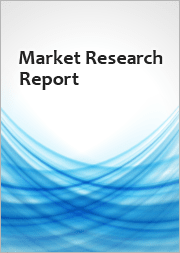
|
시장보고서
상품코드
1649458
정신건강 분야 인공지능(AI) 시장 : 예측(2025-2030년)Artificial Intelligence (AI) in Mental Health Market - Forecasts from 2025 to 2030 |
||||||
정신건강 분야 인공지능(AI) 시장은 CAGR 17.11%로 성장할 전망이며, 2025년 32억 6,978만 달러에서 2030년에는 72억 218만 달러 규모에 이를 것으로 예상됩니다.
정신 질환은 여전히 세계의 공중 보건에 중요한 문제이며 전 세계 수백만 명에 영향을 미칩니다. 정신건강 관리에 대한 액세스 제한, 편견 및 자원 제약으로 인한 과제에도 불구하고 인공지능(AI) 기술의 통합은 정신건강 관리에 유망한 미래를 제공합니다. 정신건강 분야 인공지능(AI) 시장은 우울증, 정신 분열증 및 기타 정신병 장애 증가로 성장하고 있습니다. 세계보건기구(WHO)에 따르면 10세에서 14세의 약 4.4%, 15세에서 19세의 약 5.5%가 불안장애로 고통받고 있습니다.
정신건강 분야 인공지능(AI) 시장 성장 촉진요인 :
- 정신 건강에 대한 의식 증가와 편견의 감소 : 정신 장애의 유병률 증가는 정신건강 분야 인공지능(AI) 시장을 견인하는 중요한 요소입니다. WHO의 보고에 따르면, 10세에서 19세의 7명 중 1명이 정신장애를 경험하고 있으며, 이 연령층에 있어서의 세계의 질병 부담의 15%를 차지하고 있습니다. 15세에서 29세 사이의 사인의 3위는 자살입니다. 2022년에는 미국 성인의 7.74%가 약물 사용 장애가 있다고 보고했습니다.
게다가 Mental Health America에 따르면 2022년에는 미국 성인의 19.86%가 정신 질환을 경험했고 약 56%가 치료를 받지 않았습니다. 이러한 미충족 요구는 AI 기술이 효과적인 솔루션을 제공할 기회가 됩니다.
정신건강 분야 인공지능(AI) 시장의 지리적 전망 :
- 미국에서 현저한 성장 : 정신건강 분야 AI 시장은 정신건강 질환의 유병률 증가, AI 기술의 진보, 원격 의료 솔루션의 수용 확대 등 여러 주요 촉진요인에 의해 미국에서 현저한 성장을 이루고 있습니다. 불안, 우울증, PTSD와 같은 문제 증가는 효과적인 치료 옵션에 대한 긴급한 필요성을 창출하고 있습니다. COVID-19의 대유행은 이러한 과제를 악화시키고, 스트레스와 불확실성이 높아지는 가운데 개인이 도움을 요구하게 되어, 정신건강 서비스에 대한 수요의 급증으로 이어졌습니다.
기존의 헬스케어 시스템이 이 수요에 대응하는데 고전하고 있는 가운데, 확장 가능하고 이용하기 쉬운 정신건강 케어를 제공하는 것으로, 갭을 메우는 실행 가능한 솔루션으로서 AI 기술이 대두해 왔습니다. AI 주도 플랫폼은 엄청난 양의 데이터를 분석하여 개인에 맞는 치료와 실시간 감정 지원을 제공하여 정신건강 서비스의 효율성과 효과를 높일 수 있습니다. 미국 정부는 헬스케어 분야 AI의 잠재력을 인식하고 개발을 촉진하기 위한 이니셔티브를 실시했습니다. 예를 들어, 미국 AI 이니셔티브는 다양한 분야의 용도 가이드라인을 수립함으로써 미국을 인공지능의 리더로 자리매김하는 것을 목표로 하고 있습니다. 게다가 정신건강 기술에 대한 유리한 자금제공 기회가 관민 쌍방으로부터의 투자를 유치하고 있으며, 혁신을 더욱 촉진하고 있습니다. 견고한 헬스케어 IT 인프라와 정신건강 문제에 대한 국민의 의식이 높아짐에 따라 AI 솔루션의 급속한 확대를 조장하는 환경이 갖추어지고 있습니다. 요약하면 정신건강 문제에 대한 의식이 높아지고, AI 애플리케이션의 기술적 진보, 효과적인 치료 옵션에 대한 수요가 높아지며, 이 중요한 분야에서의 혁신을 촉진하는 정부의 지원 이니셔티브(특히 미국 내)에 의해 세계의 정신건강 분야 인공지능(AI) 시장은 크게 성장할 전망입니다.
이 보고서를 구입하는 이유
- 인사이트 있는 분석 : 고객 부문, 정부 정책 및 사회경제 요인, 소비자 선호, 산업별 및 기타 하위 부문에 초점을 맞추어 주요 지역뿐만 아니라 신흥 지역도 다루는 상세한 시장 고려사항을 얻을 수 있습니다.
- 경쟁 구도 : 세계 주요 기업이 채택한 전략적 전략을 이해하고 적절한 전략으로 시장 침투 가능성을 이해할 수 있습니다.
- 시장 동향 및 촉진요인 : 동적 요인과 매우 중요한 시장 동향, 그리고 그들이 향후 시장 전개를 어떻게 형성해 나가는지를 탐구합니다.
- 실행 가능한 제안 : 역동적인 환경에서 새로운 비즈니스 스트림과 수익을 발굴하기 위한 전략적 결정을 내리기 위해 인사이트를 활용합니다.
- 폭넓은 이용자에 대응 : 신흥기업, 연구기관, 컨설턴트, 중소기업, 대기업에 유익하고 비용 효율적입니다.
어떤 용도로 사용됩니까?
업계 및 시장 인사이트, 사업 기회 평가, 제품 수요 예측, 시장 진출 전략, 지리적 확대, 설비 투자 결정, 규제 프레임워크 및 영향, 신제품 개척, 경쟁의 영향
조사 범위
- 실적 데이터 및 예측(2022-2030년)
- 성장 기회, 과제, 공급망 전망, 규제 틀, 고객 행동, 동향 분석
- 경쟁 포지셔닝, 전략, 시장 점유율 분석
- 수익 성장 및 예측 각국을 포함한 부문 및 지역 분석
- 기업 프로파일링(전략, 제품, 재무 상황, 주요 발전 등)
정신건강 분야 인공지능(AI) 시장은 다음과 같이 분류됩니다.
기술별
- 머신러닝
- 자연언어처리(NLP)
- 딥러닝
- 컴퓨터 비전
- 기타
용도별
- 진단 및 치료
- 가상 어시스턴트 채팅봇
- 정신 건강 모니터링
- 예측 분석
- 기타
최종 사용자별
- 병원 및 클리닉
- 정신 건강 센터
- 연구기관
- 기타
지역별
- 북미
- 미국
- 캐나다
- 멕시코
- 남미
- 브라질
- 아르헨티나
- 기타
- 유럽
- 영국
- 독일
- 프랑스
- 스페인
- 기타
- 중동 및 아프리카
- 사우디아라비아
- UAE
- 이스라엘
- 기타
- 아시아태평양
- 일본
- 중국
- 인도
- 한국
- 인도네시아
- 태국
- 기타
목차
제1장 서론
- 시장 개요
- 시장의 정의
- 조사 범위
- 시장 세분화
- 통화
- 전제조건
- 기준연도 및 예측연도의 타임라인
- 이해 관계자에게 있어서 주요 이점
제2장 조사 방법
- 조사 디자인
- 조사 과정
제3장 주요 요약
- 주요 조사 결과
- 애널리스트 보기
제4장 시장 역학
- 시장 성장 촉진요인
- 시장 성장 억제요인
- Porter's Five Forces 분석
- 업계 밸류체인 분석
제5장 정신건강 분야 인공지능(AI) 시장 : 기술별
- 서문
- 머신러닝
- 자연언어처리(NLP)
- 딥러닝
- 컴퓨터 비전
- 기타
제6장 정신건강 분야 인공지능(AI) 시장 : 용도별
- 서문
- 진단 및 치료
- 가상 어시스턴트 채팅봇
- 정신건강 모니터링
- 예측 분석
- 기타
제7장 정신건강 분야 인공지능(AI) 시장 : 최종 사용자별
- 서문
- 병원 및 진료소
- 정신건강 센터
- 연구기관
- 기타
제8장 정신건강 분야 인공지능(AI) 시장 : 지역별
- 서문
- 북미
- 미국
- 캐나다
- 멕시코
- 남미
- 브라질
- 아르헨티나
- 기타
- 유럽
- 영국
- 독일
- 프랑스
- 스페인
- 기타
- 중동 및 아프리카
- 사우디아라비아
- 아랍에미리트(UAE)
- 이스라엘
- 기타
- 아시아태평양
- 일본
- 중국
- 인도
- 한국
- 인도네시아
- 태국
- 기타
제9장 경쟁 환경 및 분석
- 주요 기업 및 전략 분석
- 시장 점유율 분석
- 합병, 인수, 합의 및 콜라보레이션
- 경쟁 대시보드
제10장 기업 프로파일
- Google Llc(Alphabet Inc.)
- Microsoft Corporation
- IBM Corporation
- Amazon Web Services(AWS)
- Intel Corporation
- Cogito Corporation
- Ginger.io Inc.(Headspace Health)
- Woebot Health
- Pear Therapeutics, Inc.
- HopeLine.ai
- Wysa Ltd
The AI in the mental health market is expected to grow at a CAGR of 17.11%, reaching a market size of US$7,202.18 million in 2030 from US$3,269.78 million in 2025.
Mental illness remains a significant global public health issue, affecting millions of individuals worldwide. Despite the challenges posed by limited access to mental healthcare, stigma, and resource constraints, the integration of artificial intelligence (AI) technologies offers a promising future for mental health care. The AI in the mental health market is experiencing growth due to rising cases of depressive disorders, schizophrenia, and other psychotic disorders. According to the World Health Organization (WHO), approximately 4.4% of 10-14-year-olds and 5.5% of 15-19-year-olds suffer from anxiety disorders.
Drivers of the Artificial Intelligence (AI) in the Mental Health Market:
- Increased Mental Health Awareness and Reduced Stigma: The growing prevalence of mental disorders is a significant factor driving the AI in mental health market. WHO reports that one in seven individuals aged 10-19 experiences a mental disorder, accounting for 15% of the global disease burden in this age group. Suicide ranks as the third leading cause of death among those aged 15-29 years. This escalating mental health crisis has created societal challenges, including substance use disorders; in 2022, 7.74% of adults in the U.S. reported having a substance use disorder.
Moreover, Mental Health America indicates that 19.86% of U.S. adults experienced a mental illness in 2022, with about 56% receiving no treatment. These unmet needs present an opportunity for AI technologies to provide effective solutions.
Geographical Outlook of the Artificial Intelligence (AI) in the Mental Health Market:
- Significant Growth in the United States: The AI in mental health market is witnessing remarkable growth in the United States due to several key drivers, including an increasing prevalence of mental health disorders, advancements in AI technologies, and growing acceptance of telehealth solutions. The rise in issues such as anxiety, depression, and PTSD has created an urgent need for effective treatment options. The COVID-19 pandemic exacerbated these challenges, leading to a surge in demand for mental health services as individuals sought help during heightened stress and uncertainty.
As traditional healthcare systems struggle to meet this demand, AI technologies are emerging as viable solutions to bridge gaps by providing scalable and accessible mental health care. AI-driven platforms can analyze vast amounts of data to offer personalized therapy and real-time emotional support, enhancing the efficiency and effectiveness of mental health services.The U.S. government recognizes AI's potential in healthcare and has implemented initiatives to promote its development. For instance, the American AI Initiative aims to position the U.S. as a leader in artificial intelligence by establishing guidelines for various sectors' applications. Additionally, favorable funding opportunities for mental health technology have attracted investments from both public and private sectors, further driving innovation.The combination of a robust healthcare IT infrastructure and increasing public awareness about mental health issues creates an environment conducive to rapid expansion of AI solutions.In summary, the global AI in mental health market is poised for significant growth driven by rising awareness of mental health issues, technological advancements in AI applications, increasing demand for effective treatment options, and supportive governmental initiatives-particularly within the United States-that foster innovation in this critical sector.
Reasons for buying this report:-
- Insightful Analysis: Gain detailed market insights covering major as well as emerging geographical regions, focusing on customer segments, government policies and socio-economic factors, consumer preferences, industry verticals, other sub- segments.
- Competitive Landscape: Understand the strategic maneuvers employed by key players globally to understand possible market penetration with the correct strategy.
- Market Drivers & Future Trends: Explore the dynamic factors and pivotal market trends and how they will shape up future market developments.
- Actionable Recommendations: Utilize the insights to exercise strategic decision to uncover new business streams and revenues in a dynamic environment.
- Caters to a Wide Audience: Beneficial and cost-effective for startups, research institutions, consultants, SMEs, and large enterprises.
What do businesses use our reports for?
Industry and Market Insights, Opportunity Assessment, Product Demand Forecasting, Market Entry Strategy, Geographical Expansion, Capital Investment Decisions, Regulatory Framework & Implications, New Product Development, Competitive Intelligence
Report Coverage:
- Historical data & forecasts from 2022 to 2030
- Growth Opportunities, Challenges, Supply Chain Outlook, Regulatory Framework, Customer Behaviour, and Trend Analysis
- Competitive Positioning, Strategies, and Market Share Analysis
- Revenue Growth and Forecast Assessment of segments and regions including countries
- Company Profiling (Strategies, Products, Financial Information, and Key Developments among others)
Artificial Intelligence (AI) in mental health market has been segmented as following:
By Technology
- Machine Learning
- Natural Language Processing (NLP)
- Deep Learning
- Computer Vision
- Others
By Application
- Diagnosis And Treatment
- Virtual Assistants and Chatbots
- Mental Health Monitoring
- Predictive Analytics
- Others
By End-User
- Hospitals And Clinics
- Mental Health Centers
- Research Institutions
- Others
By Geography
- North America
- United States
- Canada
- Mexico
- South America
- Brazil
- Argentina
- Others
- Europe
- United Kingdom
- Germany
- France
- Spain
- Others
- Middle East and Africa
- Saudi Arabia
- UAE
- Israel
- Others
- Asia Pacific
- Japan
- China
- India
- South Korea
- Indonesia
- Thailand
- Others
TABLE OF CONTENTS
1. INTRODUCTION
- 1.1. Market Overview
- 1.2. Market Definition
- 1.3. Scope of the Study
- 1.4. Market Segmentation
- 1.5. Currency
- 1.6. Assumptions
- 1.7. Base and Forecast Years Timeline
- 1.8. Key Benefits for the Stakeholders
2. RESEARCH METHODOLOGY
- 2.1. Research Design
- 2.2. Research Process
3. EXECUTIVE SUMMARY
- 3.1. Key Findings
- 3.2. Analyst View
4. MARKET DYNAMICS
- 4.1. Market Drivers
- 4.2. Market Restraints
- 4.3. Porter's Five Forces Analysis
- 4.3.1. Bargaining Power of Supplier
- 4.3.2. Bargaining Power of Buyers
- 4.3.3. Threat of New Entrants
- 4.3.4. Threat of Substitutes
- 4.3.5. Competitive Rivalry in the Industry
- 4.4. Industry Value Chain Analysis
5. ARTIFICIAL INTELLIGENCE (AI) IN MENTAL HEALTH MARKET BY TECHNOLOGY
- 5.1. Introduction
- 5.2. Machine Learning
- 5.3. Natural Language Processing (NLP)
- 5.4. Deep Learning
- 5.5. Computer Vision
- 5.6. Others
6. ARTIFICIAL INTELLIGENCE (AI) IN MENTAL HEALTH MARKET BY APPLICATION
- 6.1. Introduction
- 6.2. Diagnosis And Treatment
- 6.3. Virtual Assistants And Chatbots
- 6.4. Mental Health Monitoring
- 6.5. Predictive Analytics
- 6.6. Others
7. ARTIFICIAL INTELLIGENCE (AI) IN MENTAL HEALTH MARKET BY END-USER
- 7.1. Introduction
- 7.2. Hospitals And Clinics
- 7.3. Mental Health Centers
- 7.4. Research Institutions
- 7.5. Others
8. ARTIFICIAL INTELLIGENCE (AI) IN MENTAL HEALTH MARKET BY GEOGRAPHY
- 8.1. Introduction
- 8.2. North America
- 8.2.1. United States
- 8.2.2. Canada
- 8.2.3. Mexico
- 8.3. South America
- 8.3.1. Brazil
- 8.3.2. Argentina
- 8.3.3. Others
- 8.4. Europe
- 8.4.1. United Kingdom
- 8.4.2. Germany
- 8.4.3. France
- 8.4.4. Spain
- 8.4.5. Others
- 8.5. Middle East and Africa
- 8.5.1. Saudi Arabia
- 8.5.2. UAE
- 8.5.3. Israel
- 8.5.4. Others
- 8.6. Asia Pacific
- 8.6.1. Japan
- 8.6.2. China
- 8.6.3. India
- 8.6.4. South Korea
- 8.6.5. Indonesia
- 8.6.6. Thailand
- 8.6.7. Others
9. COMPETITIVE ENVIRONMENT AND ANALYSIS
- 9.1. Major Players and Strategy Analysis
- 9.2. Market Share Analysis
- 9.3. Mergers, Acquisitions, Agreements, and Collaborations
- 9.4. Competitive Dashboard
10. COMPANY PROFILES
- 10.1. Google Llc (Alphabet Inc.)
- 10.2. Microsoft Corporation
- 10.3. IBM Corporation
- 10.4. Amazon Web Services (AWS)
- 10.5. Intel Corporation
- 10.6. Cogito Corporation
- 10.7. Ginger.io Inc. (Headspace Health)
- 10.8. Woebot Health
- 10.9. Pear Therapeutics, Inc.
- 10.10. HopeLine.ai
- 10.11. Wysa Ltd


















